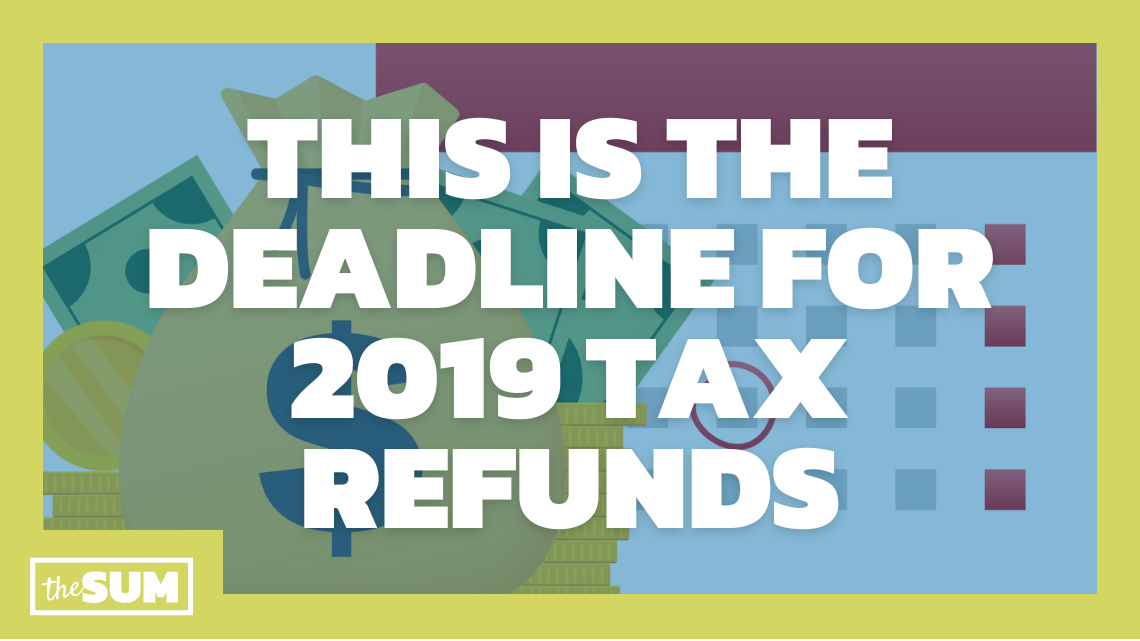Taxpayers left $1.5B on the table in 2019, IRS estimates. You can still claim your refund

- Oops!Something went wrong.Please try again later.
There’s just one week left for you to claim money the IRS might owe you. Here’s how you can do it.
The IRS estimates nearly $1.5 billion in tax refunds haven’t been claimed. So, if you didn’t file your 2019 taxes and are one of 1.5 million taxpayers that still need to, you have until July 17.
“Time is running out for people owed a tax refund in 2019,” IRS Commissioner Danny Werfel said in a news release. “The IRS continues to urge people who may have overlooked filing during the pandemic to act quickly before they lose their final chance to claim a potentially substantial refund.”
The median unclaimed refund is $893. And if your 2019 income qualified for the Earned Income Tax Credit, you could be eligible for as much as $6,557.
In California, for example, almost 145,000 people could receive a median refund of $856 — there’s almost $141.8 million available in potential refunds.
You have three years to file taxes and get your refund. If you don’t, it will belong to the U.S. Treasury. More time was already allowed than usual because of the COVID-19 pandemic.
You have to address, mail and postmark your tax return by July 17. Also be sure to file for tax years 2020 and 2021 or your refund check might be withheld.
If you still need to find your tax information for that year, here are three options.
You can ask for copies of key tax documents (text on screen: such as forms W-2, 1098, 1099 or 5498) from your employer or bank
You can order a free wage and income transcript at IRS.gov through their Get Transcript Online Tool.
And last, you can file Form 4506-T, Request for Transcript of Tax Return with the IRS — but this can take weeks.
However, if you owe other amounts to the IRS or a state tax agency, or are behind on child support or past due federal debts such as student loans, your refund will be applied to that first.
Here’s how the unclaimed refunds break down by state.
State or District | Estimated Number of Individuals | Median Potential Refund | Total Potential Refunds* |
|---|---|---|---|
Alabama | 23,900 | $880 | $23,694,700 |
Alaska | 6,000 | $917 | $6,542,300 |
Arizona | 35,400 | $824 | $33,911,500 |
Arkansas | 12,800 | $864 | $12,586,100 |
California | 144,700 | $856 | $141,780,000 |
Colorado | 30,100 | $859 | $29,514,000 |
Connecticut | 15,400 | $934 | $16,198,400 |
Delaware | 5,700 | $880 | $5,754,900 |
District of Columbia | 4,400 | $887 | $4,550,100 |
Florida | 89,300 | $893 | $89,530,400 |
Georgia | 48,000 | $826 | $46,269,000 |
Hawaii | 8,800 | $932 | $9,197,700 |
Idaho | 7,600 | $758 | $6,996,000 |
Illinois | 55,800 | $916 | $57,591,300 |
Indiana | 31,700 | $916 | $32,115,100 |
Iowa | 15,300 | $926 | $15,492,600 |
Kansas | 14,600 | $913 | $14,753,700 |
Kentucky | 18,600 | $906 | $18,574,200 |
Louisiana | 22,000 | $877 | $22,274,800 |
Maine | 6,400 | $876 | $6,197,300 |
Maryland | 31,400 | $897 | $32,344,500 |
Massachusetts | 35,700 | $966 | $38,400,900 |
Michigan | 48,500 | $888 | $48,582,600 |
Minnesota | 23,200 | $848 | $22,387,800 |
Mississippi | 12,300 | $820 | $11,836,700 |
Missouri | 31,800 | $880 | $31,345,700 |
Montana | 5,200 | $854 | $5,144,900 |
Nebraska | 7,800 | $893 | $7,745,600 |
Nevada | 15,800 | $869 | $15,550,300 |
New Hampshire | 6,900 | $974 | $7,451,800 |
New Jersey | 40,500 | $924 | $42,035,900 |
New Mexico | 9,600 | $867 | $9,522,400 |
New York | 81,600 | $945 | $86,826,200 |
North Carolina | 45,800 | $862 | $44,426,600 |
North Dakota | 3,700 | $958 | $3,997,100 |
Ohio | 51,800 | $868 | $50,234,900 |
Oklahoma | 21,400 | $897 | $21,770,000 |
Oregon | 23,700 | $801 | $22,348,900 |
Pennsylvania | 56,000 | $924 | $57,572,600 |
Rhode Island | 4,300 | $924 | $4,468,700 |
South Carolina | 18,200 | $809 | $17,264,100 |
South Dakota | 3,700 | $918 | $3,746,700 |
Tennessee | 28,100 | $873 | $27,623,700 |
Texas | 135,300 | $924 | $142,235,200 |
Utah | 11,700 | $845 | $11,198,400 |
Vermont | 3,100 | $901 | $3,036,600 |
Virginia | 42,200 | $869 | $42,110,500 |
Washington | 42,400 | $934 | $44,823,200 |
West Virginia | 6,500 | $959 | $6,818,900 |
Wisconsin | 21,000 | $834 | $20,003,100 |
Wyoming | 3,300 | $949 | $3,534,800 |
Totals | 1,469,000 | $893 | $1,479,913,400 |
What is The Sum?
The Sum is your friendly guide to personal finance and economic news.
We’re a team of McClatchy journalists cutting through the financial jargon so you know how these issues impact your life. We verify information from diverse sources and keep the facts front-and-center, making finance and economic news add up for you.
You can follow The Sum on Instagram and TikTok.
Ready to take the first step to getting your finances under control? You can sign up for our five-week budgeting newsletter at thesum.news.

